
Archive
2,437 posts

Molasses from the manufacture of beet sugar enables an improvement in the fermentation quality of beet-pulp silages. An in vivo trial with sheep was carried out at Agroscope Posieux in order to ascertain the digestibility of molassed pulp silages. Adult wethers (n = 4 per treatment; 83.9 ± 9.3 kg average weight) were given rations…
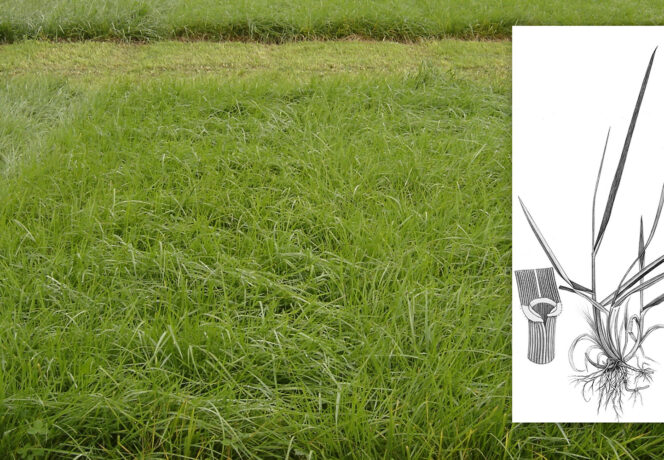
Tall fescue: Previous varieties uncontested, new ones don't make the grade
From 2012 to 2014, Agroscope conducted comparative trials on 17 varieties of tall fescue (Festuca arundinacea Schreber) and two varieties of xFestulolium krasanii at seven experimental sites. All varieties were grown in pure stands and in mixture with clover. The parameters assessed were dry matter yield, juvenile development, regrowth speed, general impression, competitive ability, persistence,…
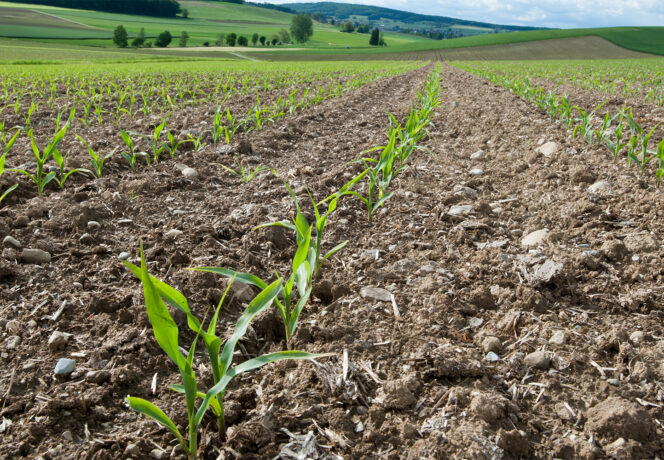
The impact of climate change on maize cultivation in Switzerland
The premise that global warming changes the conditions for crop production was investigated throughout Switzerland on the basis of a climate suitability for grain maize cultivation. Gridded projections1 of temperature changes for three time periods (2020–49, 2045–74, 2070–99) available from twenty climate-model chains for the A2 emissions scenario (i.e. the «business as usual» scenario) were…



Standard labour unit: factors for para-agricultural activities
Factors for calculating standard labour units (SLUs) are derived from cost/ performance calculations for paraagricultural activities found in business- management literature. The SLU factors specify the necessary labour input per CHF 10 000 of volume of sales or turnover, with three activity categories being distinguished. Leisure time and educational activities on the farm are highly…

Silage quality: pressed sugar-beet pulp with added molasses
During the sugar production in 2014, around 4 % molasses was added to the pressed sugar-beet pulp in both the Aarberg and Frauenfeld sugar refineries. In the present survey, we investigated the influence of higher additions of molasses on silage quality and aerobic stability. Zero, 7 or 14 % molasses was added to the pressed…

Contributions of Agroscope’s research to
Agroscope’s working programme 2014–17 aims at providing specific solutions for key challenges of Swiss crop production. The competitiveness of crop production and a healthy environment are overarching objectives. The critical context exacerbated by population growth and scarcity of land reserves requires ecological intensification: increasing yields and food quality per invested resource unit while avoiding undesirable…
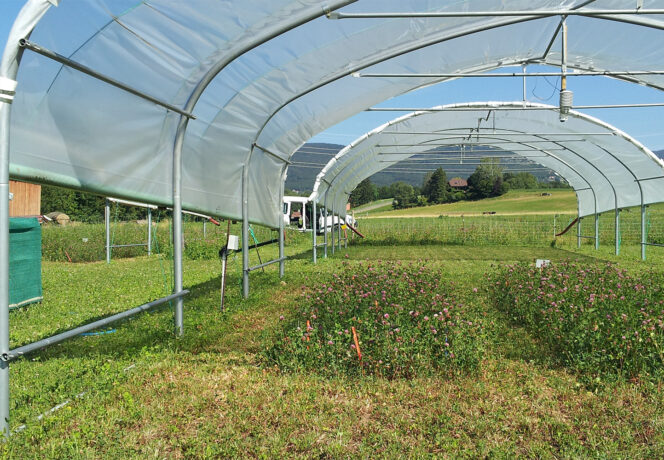
Drought events: characterisation and effects on grassland agronomic services
The comparison of drought events requires common criteria reflecting the stress ‘experienced’ by plants. This study evaluates the relevance of different indices for the characterization of the intensity of drought stress. The reflections concerning the indices are based on the results of drought trials (simulations with rain-out shelters) conducted by Agroscope between 2012 and 2014…
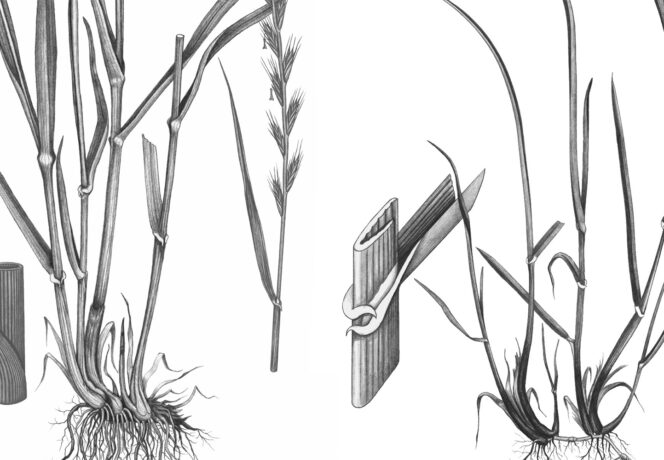
Hybrid Ryegrass: 26 varieties tested in thefield
From 2012 to 2014, as part of variety testing, Agroscope performed trials with 25 varieties of hybrid ryegrass (Lolium x hybridum Hausskn.) and one variety of xFestulolium braunii akin to hybrid ryegrass at a total of six sites. Among these varieties were twelve previously recommended cultivars, which were to undergo periodical retesting. Dry-matter yield, digestibility,…

The spread of yellow nutsedge (Cyperus esculentus L.) concerns everyone
According to a survey conducted in 26 countries, yellow nutsedge (Cyperus esculentus L.) belongs to the most dangerous weeds in Europe due to its high reproductive capability, its weediness (local abundance) and low success of control. Unintentional spread of tubers from field to field by machinery and crop waste is an important element of the…
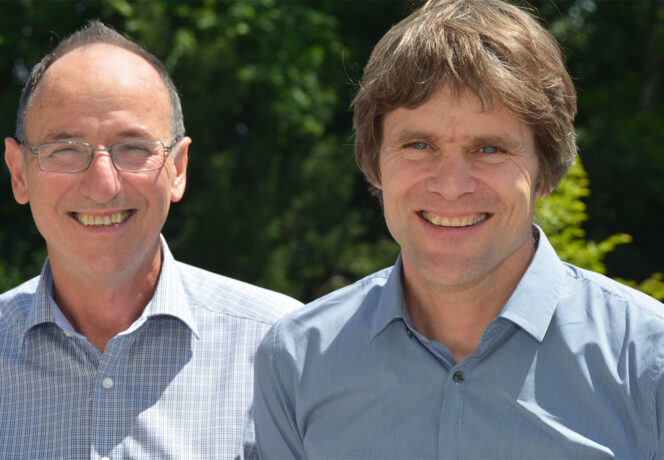


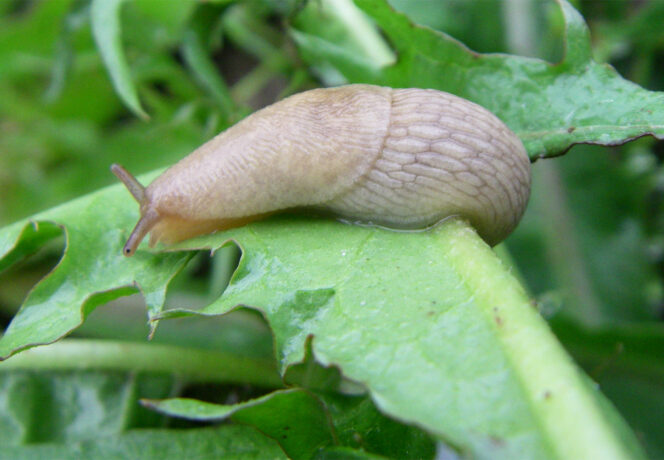


Opti-Milk Project: economic efficiency of the full-grazing strategy – results from 2000 to 2010
In the project Opti-Milk (2000–2004), the technical feasibility of the fullgrazing strategy with seasonal calving in spring (low-cost strategy) for dairy farms on the Swiss Plateau was shown. The good economic prospects of the strategy based on budgets and predicted costs during the project could be verified with an analysis of the total costs on…
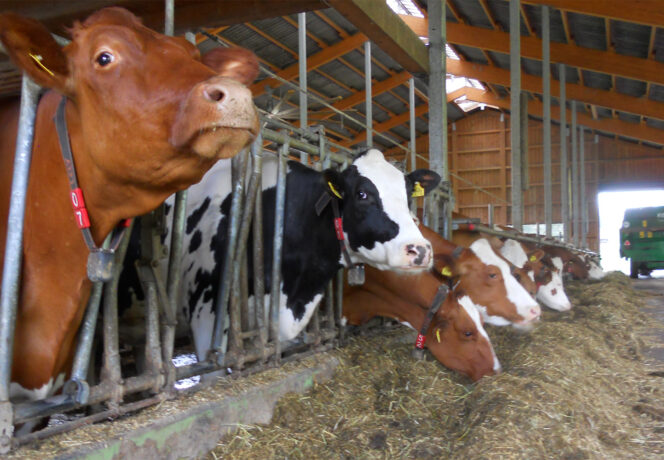
Opti-Milk Project: economic efficiency of the high-output strategy – results from 2000 to 2010
In the project Opti-Milk (2000–2004), the technical feasibility of the highoutput strategy for dairy farms on the Swiss Plateau was shown. The good economic prospects of the strategy based on budgets and predicted costs during the project could be verified with an analysis of the total costs on dairy farms from 1999 to 2011. The…

Evaluation of AzoFert®, a software tool for optimising nitrogen fertilisation of Swiss field crops
The French software tool AzoFert® is based on a complete and predictive dynamic nitrogen balance sheet to establish the nitrogen fertilization recommendation. This software tool uses modelling and measurement of the mineral nitrogen stock at the beginning of the balance in order to precisely adjust the fertilizer recommendation to the soil, climatic and cultural characteristics…

Rape-stem weevil: effect on yield and action threshold
Rape-stem weevil (Ceutorhynchus napi Gyll.) has proven harmful for oilseed rape in Switzerland since the introduction of this crop during the Second World War. The impact of this pest on yield and the possibility of establishing an action threshold were determined during tests, from 1981 to 2008. Weevils invade oilseed rape crops in winter, once…

Six new Swiss-bred varieties of perennial ryegrass
In 2013, six new tetraploid varieties of early (Arcturus, Algira and Salmo) and late (Allodia, Vidalia and Soraya) perennial ryegrass (Lolium perenne L.) from the Agroscope breeding programme were admitted onto the Swiss List of Recommended Varieties for forage plants. The lineage of the three early varieties goes directly back to diploid Swiss ecotype material…

Influence of variety and environment on quality traits in organic winter wheat
Measures for improving quality are currently being tested in Swiss wheat production. In cultivation, quality can be influenced by choice of site, management, and variety. In order to investigate the effects of variety and the environment, comprehensive quality tests were performed on 12 varieties in the Organic Wheat Trial Network in 2012 and 2013. It…

Approaches for optimising linseed cultivation in Switzerland
Despite state financial support (oilseed payments) for linseed, linseed is still a fairly insignificant oilseed crop in Switzerland. Over the last few years, however, the area under organic cultivation of this crop has been significantly expanded. With the aim of improving yield stability, in small-plot trials, comparisons of autumn vs. spring sowing and of two…


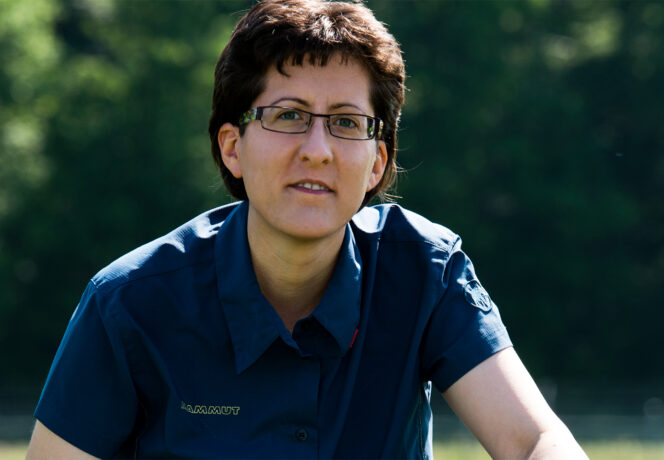


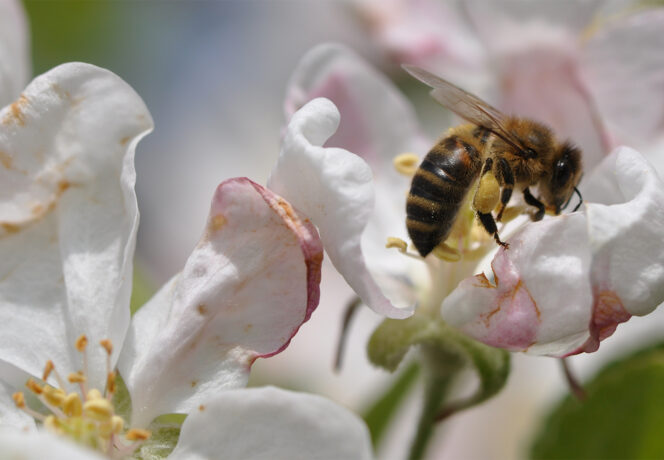

Beekeeping and farming – dependence and contradiction
In many countries of the northern hemisphere, populations of honey bees and other pollinating insects have been in decline for some years. The causes of this decline have not yet fully been clarified. There are, however, strong indications that intensive agriculture can impact pollinators negatively. Many agricultural activities affect pollinating insects and thus affect the…